Feature Films
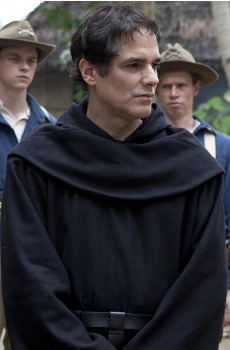 Amigo tells of a Phillippine community caught in the crossfire between two armed forces: rebels struggling for independence and U.S. troops spreading imperialism.
Amigo tells of a Phillippine community caught in the crossfire between two armed forces: rebels struggling for independence and U.S. troops spreading imperialism.
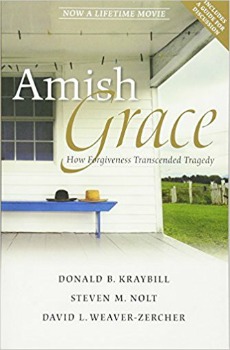 Amish Grace revolves around the Amish community's reaction to the shootings at their school in Nickel Mines, Pennsylvania. They exhibit a mix of anguish, rage, desire for revenge, and forgiveness.
Amish Grace revolves around the Amish community's reaction to the shootings at their school in Nickel Mines, Pennsylvania. They exhibit a mix of anguish, rage, desire for revenge, and forgiveness.
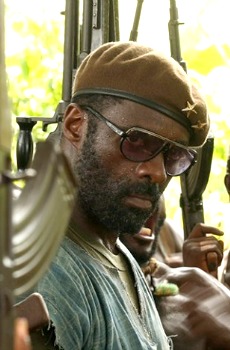 Beasts of No Nation graphically depicts the dehumanization of "child soldiers" who are trained to regard most others as enemies. They are forced to murder civilians, rape women and girls, and destroy and desecrate ancestral homes.
Beasts of No Nation graphically depicts the dehumanization of "child soldiers" who are trained to regard most others as enemies. They are forced to murder civilians, rape women and girls, and destroy and desecrate ancestral homes.
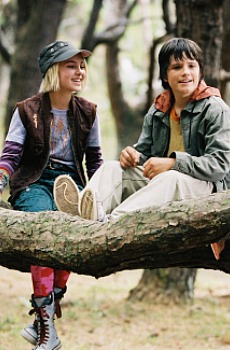 Bridge to Terabithia follows the story of two lonely children who become close friends and use imagination to deal with the very real and palpable challenges of fear, self-doubt, stress, loss, and those who are perceived as enemies.
Bridge to Terabithia follows the story of two lonely children who become close friends and use imagination to deal with the very real and palpable challenges of fear, self-doubt, stress, loss, and those who are perceived as enemies.
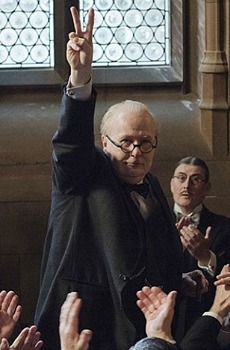 Darkest Hour depicts Winston Churchilll as a man saddled with burdens yet a savvy, determined negotiator during some of the most critical and fateful days for the survival of England during World War II.
Darkest Hour depicts Winston Churchilll as a man saddled with burdens yet a savvy, determined negotiator during some of the most critical and fateful days for the survival of England during World War II.
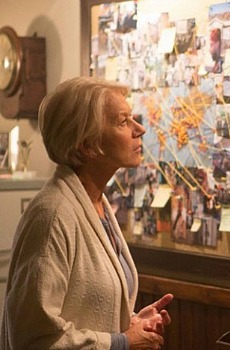 Eye in the Sky takes us inside a top-secret drone operation and enables us to see how drones have changed everything we have ever thought or felt about war, technology, and the value of the lives of innocent noncombatants.
Eye in the Sky takes us inside a top-secret drone operation and enables us to see how drones have changed everything we have ever thought or felt about war, technology, and the value of the lives of innocent noncombatants.
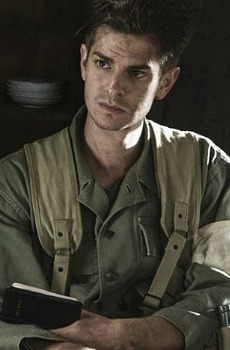 Hacksaw Ridge brings us the inspiring, true story of Desmond Doss, a Seventh-Day Adventist who refuses to kill but wants to serve his country, calling himself "a conscientious cooperator."
Hacksaw Ridge brings us the inspiring, true story of Desmond Doss, a Seventh-Day Adventist who refuses to kill but wants to serve his country, calling himself "a conscientious cooperator."
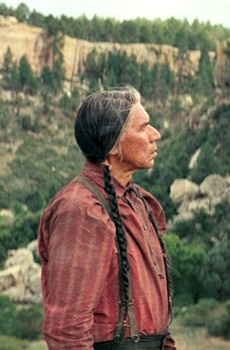 Hostiles is an unusual and salutary western in which a military officer transporting a dying Cheyenne war chief back to his tribal lands finds his vengeful attitudes and expectations transformed.
Hostiles is an unusual and salutary western in which a military officer transporting a dying Cheyenne war chief back to his tribal lands finds his vengeful attitudes and expectations transformed.
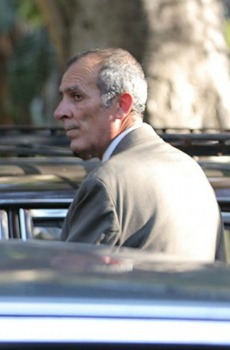 The Insult vividly conveys the roiling tension created when insults slung by a right-wing Christian garage owner and a Palestinian refugee in Lebanon escalate into a full-blown feud.
The Insult vividly conveys the roiling tension created when insults slung by a right-wing Christian garage owner and a Palestinian refugee in Lebanon escalate into a full-blown feud.
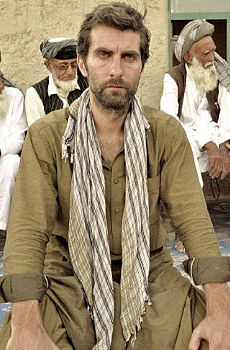 Jirga, as director Benjamin Gilmour writes, "offers an insight into the character and motives of those we view as the enemy and the struggles of Afghans and the mercy found in their faith and traditions."
Jirga, as director Benjamin Gilmour writes, "offers an insight into the character and motives of those we view as the enemy and the struggles of Afghans and the mercy found in their faith and traditions."
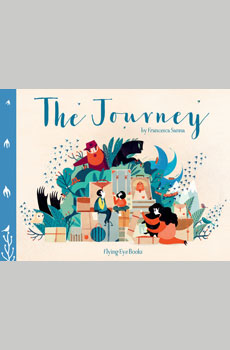 The Journey imagines a meeting between two leaders during the negotiations for the 2000 peace agreement in Northern Ireland, each man needing to set aside his sectarian ideology and to seek common ground.
The Journey imagines a meeting between two leaders during the negotiations for the 2000 peace agreement in Northern Ireland, each man needing to set aside his sectarian ideology and to seek common ground.
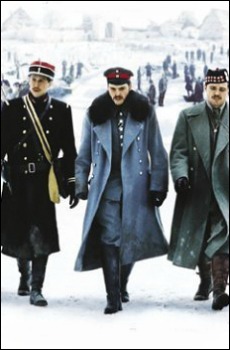 Joyeux Noel (Merry Christmas) depicts the true story of a 1914 Christmas-eve truce that brought a brief pause in the barbarity of World War I trench warfare as both sides sang together, shared pictures of their families, and took time to bury their dead.
Joyeux Noel (Merry Christmas) depicts the true story of a 1914 Christmas-eve truce that brought a brief pause in the barbarity of World War I trench warfare as both sides sang together, shared pictures of their families, and took time to bury their dead.
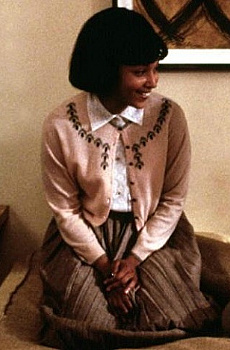 Liberty Heights takes place in 1954 — a time when barriers of race, class, and religion separated people from one another — and shows how two brothers test the boundaries of their Jewish community.
Liberty Heights takes place in 1954 — a time when barriers of race, class, and religion separated people from one another — and shows how two brothers test the boundaries of their Jewish community.
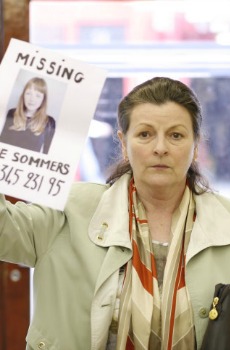 London River reveals the strange fruits that can grow out of terrorist attacks. In this case, a sheltered English Christian who is fearful of strangers discovers that she and an African Muslim have quite a lot in common despite their many differences.
London River reveals the strange fruits that can grow out of terrorist attacks. In this case, a sheltered English Christian who is fearful of strangers discovers that she and an African Muslim have quite a lot in common despite their many differences.
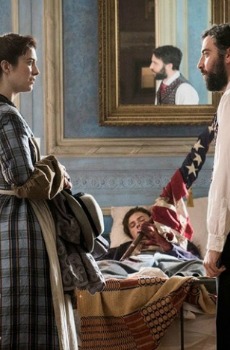 Mercy Street explores the relationship dramas in a Southern owned hotel that has been turned into a Civil War infirmary run by the Union Army. There people of different backgrounds and sympathies must learn to work together.
Mercy Street explores the relationship dramas in a Southern owned hotel that has been turned into a Civil War infirmary run by the Union Army. There people of different backgrounds and sympathies must learn to work together.
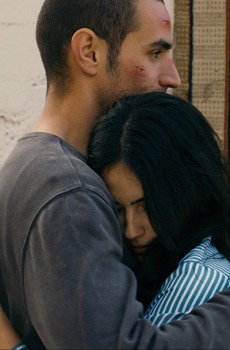 Omar draws us into the tormented life of a lovelorn Palestinian who winds up shouldering a lot of guilt as well as feeling the pinch of being called a traitor by his own people as he unwillingly works with the Israeli enemy.
Omar draws us into the tormented life of a lovelorn Palestinian who winds up shouldering a lot of guilt as well as feeling the pinch of being called a traitor by his own people as he unwillingly works with the Israeli enemy.
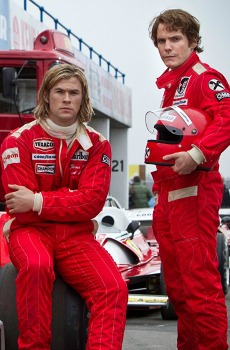 Rush tells the story of two Formula 1 racing rivals whose relationship starts in deep hatred and winds up in a vital and emotionally complex friendship.
Rush tells the story of two Formula 1 racing rivals whose relationship starts in deep hatred and winds up in a vital and emotionally complex friendship.
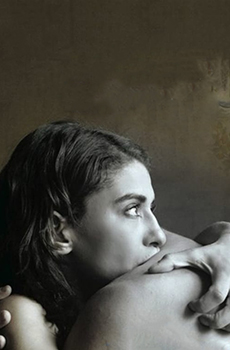 Strangers observes an Israeli man and a Palestinian woman who fall in love in spite of the ancient enmities of their peoples. They have to contend with their rigid thinking about others as enemies.
Strangers observes an Israeli man and a Palestinian woman who fall in love in spite of the ancient enmities of their peoples. They have to contend with their rigid thinking about others as enemies.
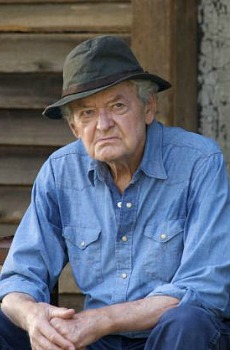 That Evening Sun describes what happens when a stubborn and inflexible patriarch -- who has divided the world into good guys and bad guys -- discovers that his country farm has been leased to people he considers "white trash."
That Evening Sun describes what happens when a stubborn and inflexible patriarch -- who has divided the world into good guys and bad guys -- discovers that his country farm has been leased to people he considers "white trash."
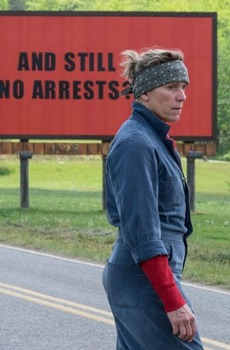 Three Billboards Outside Ebbing, Missouri, through the lens of a mother's zealous campaign to find her daughter's killer, touches on themes of the unflagging quest for justice, the intensity of grief, and the morally reprehensible nature of revenge.
Three Billboards Outside Ebbing, Missouri, through the lens of a mother's zealous campaign to find her daughter's killer, touches on themes of the unflagging quest for justice, the intensity of grief, and the morally reprehensible nature of revenge.
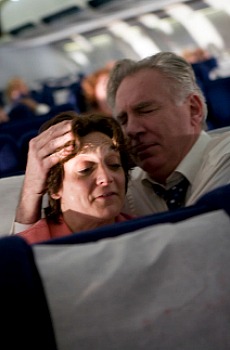 United 93 gives us a chance to practice empathy, not hostility, as we immerse ourselves vicariously in the experience of the many people affected by the hijacking of a plane on 9/11.
United 93 gives us a chance to practice empathy, not hostility, as we immerse ourselves vicariously in the experience of the many people affected by the hijacking of a plane on 9/11.
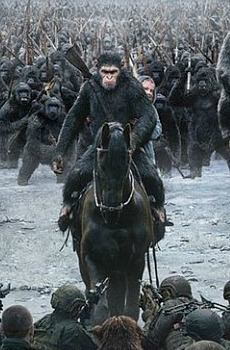 War for the Planet of the Apes encourages us to reflect upon the emptiness and self-destructiveness of revenge, the moral qualities of leadership, the folly of war, and the life-affirming values of forgiveness and compassion.
War for the Planet of the Apes encourages us to reflect upon the emptiness and self-destructiveness of revenge, the moral qualities of leadership, the folly of war, and the life-affirming values of forgiveness and compassion.
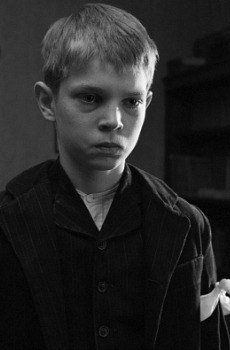 The White Ribbon describes a series of bizarre and vile incidents that tear a Protestant community in Germany apart, presenting a foreboding portrait of the seeds of violence that eventually bloom into world war and the rise of fascism.
The White Ribbon describes a series of bizarre and vile incidents that tear a Protestant community in Germany apart, presenting a foreboding portrait of the seeds of violence that eventually bloom into world war and the rise of fascism.
Documentaries
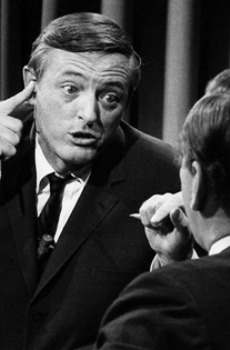 Best of Enemies shows conservative William F. Buckley and outspoken liberal Gore Vidal vehemently trading barbs and criticisms until they fall into an even more shameful exchange. These two launched the initial volley in the blood-sport that now passes for political talk on television.
Best of Enemies shows conservative William F. Buckley and outspoken liberal Gore Vidal vehemently trading barbs and criticisms until they fall into an even more shameful exchange. These two launched the initial volley in the blood-sport that now passes for political talk on television.
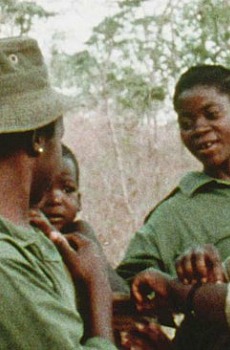 Concerning Violence: Nine Scenes from the Anti-Imperialist Self-Defense is a meditation on Afro-French revolutionary Frantz Fanon's advocacy of violence as a response to the oppression of overlords. He calls us to consider also the morally difficult practice of nonviolence.
Concerning Violence: Nine Scenes from the Anti-Imperialist Self-Defense is a meditation on Afro-French revolutionary Frantz Fanon's advocacy of violence as a response to the oppression of overlords. He calls us to consider also the morally difficult practice of nonviolence.
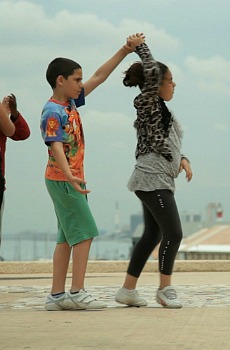 Dancing In Jaffa demonstrates the power of dance to turn an enemy into a friend, through the story of a program that teaches dance to Israeli and Palestinian children, first separately and then in a shared classroom.
Dancing In Jaffa demonstrates the power of dance to turn an enemy into a friend, through the story of a program that teaches dance to Israeli and Palestinian children, first separately and then in a shared classroom.
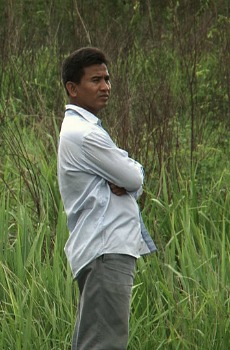 Enemies of the People is an ethical documentary about the Cambodian genocide, a Khmer Rouge leader, and farmers who followed orders and killed hundreds of people.
Enemies of the People is an ethical documentary about the Cambodian genocide, a Khmer Rouge leader, and farmers who followed orders and killed hundreds of people.
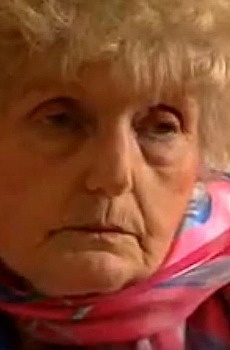 Forgiving Dr. Mengele explores the life story of Eva Kor, who survived Dr. Mengele's infamous twin experiments at Auschwitz and now works on her inner pain and on showing others the path to freedom from imprisonment in the past.
Forgiving Dr. Mengele explores the life story of Eva Kor, who survived Dr. Mengele's infamous twin experiments at Auschwitz and now works on her inner pain and on showing others the path to freedom from imprisonment in the past.
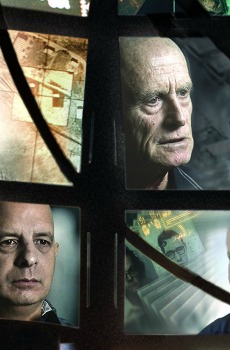 The Gatekeepers presents the perspectives of six former heads of Israel's Shin Bet counterterrorism agency, who offer a united front speaking against the ineptitude and indifference of various Israeli prime ministers.
The Gatekeepers presents the perspectives of six former heads of Israel's Shin Bet counterterrorism agency, who offer a united front speaking against the ineptitude and indifference of various Israeli prime ministers.
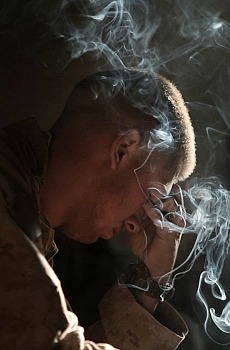 Hell and Back Again depicts glimpses of Sergeant Nathan Harris's tour of duty in Afghanistan and the violent tendencies that remain in him when he returns home injured.
Hell and Back Again depicts glimpses of Sergeant Nathan Harris's tour of duty in Afghanistan and the violent tendencies that remain in him when he returns home injured.
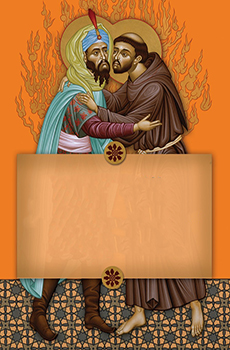 In the Footprints of Francis and the Sultan shows how these two men of God, supposed to be sworn enemies, instead find that they have much in common, such as a firm belief in one God, an openness to strangers, a belief in serving the poor, and a yearning for peace.
In the Footprints of Francis and the Sultan shows how these two men of God, supposed to be sworn enemies, instead find that they have much in common, such as a firm belief in one God, an openness to strangers, a belief in serving the poor, and a yearning for peace.
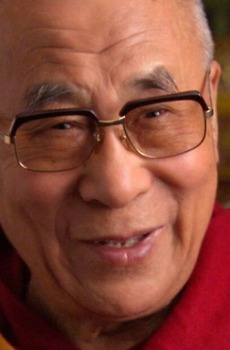 The Last Dalai Lama? reminds us that from the Tibetan Buddhist point of view, enemies can be transformed into our teachers, as His Holiness the Dalai Lama repeatedly demonstrates in his attitudes towards the Chinese who invaded and took over his people's homeland.
The Last Dalai Lama? reminds us that from the Tibetan Buddhist point of view, enemies can be transformed into our teachers, as His Holiness the Dalai Lama repeatedly demonstrates in his attitudes towards the Chinese who invaded and took over his people's homeland.
 Lord, Save Us from Your Followers delves into the question "Why is the gospel of love dividing America?" through a large-scale critique rooted in the director's personal history as an Evangelical Christian.
Lord, Save Us from Your Followers delves into the question "Why is the gospel of love dividing America?" through a large-scale critique rooted in the director's personal history as an Evangelical Christian.
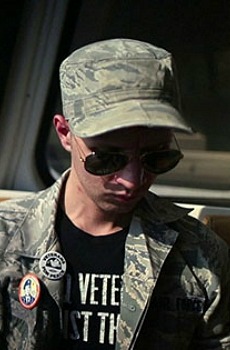 National Bird profiles three whistleblowers who are critical of drone warfare and the ethical slippery slope facing those using this new technology — especially when it comes to civilian deaths.
National Bird profiles three whistleblowers who are critical of drone warfare and the ethical slippery slope facing those using this new technology — especially when it comes to civilian deaths.
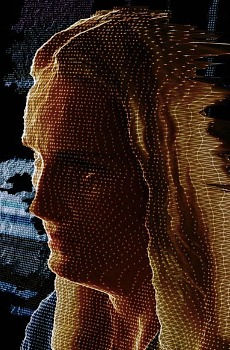 Zero Days traces the opening salvos of cyberwarfare capable of taking out a country's power grid, water supply, or defense system without being detected or traced back to its creators.
Zero Days traces the opening salvos of cyberwarfare capable of taking out a country's power grid, water supply, or defense system without being detected or traced back to its creators.
